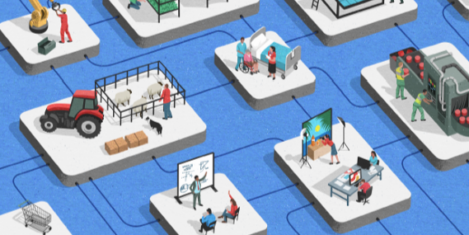May 10, 2023
Majority of employees see themselves as cogs in corporate machinery
 A significant majority (85 percent) of employees feel like they are just a cog in the machinery of their organisation and 43 percent have no idea how their performance contributes to business success, according to a new survey of employee experience and expectations. According to the new study [registration] from Oracle, HR leaders are struggling to keep up with changing employee expectations and this can have dire consequences for businesses. The survey of 1,000 employees and HR leaders across the United Kingdom (UK) found that despite current economic uncertainty, worker expectations are higher than ever, and HR leaders need help to get the employee experience right or risk losing profits and market share. More →
A significant majority (85 percent) of employees feel like they are just a cog in the machinery of their organisation and 43 percent have no idea how their performance contributes to business success, according to a new survey of employee experience and expectations. According to the new study [registration] from Oracle, HR leaders are struggling to keep up with changing employee expectations and this can have dire consequences for businesses. The survey of 1,000 employees and HR leaders across the United Kingdom (UK) found that despite current economic uncertainty, worker expectations are higher than ever, and HR leaders need help to get the employee experience right or risk losing profits and market share. More →


















 According to a new poll from
According to a new poll from 




 American employees are wasting hundreds of contracted work hours a year using their work equipment for personal tasks and activities, according to a new survey from ExpressVPN. The survey, conducted by the consumer privacy and security company, found that some people are spending only 33 percent of annual contracted hours on work tasks. With a steep rise in hybrid and home working in recent years, many companies have provided employees with work devices to use in the comfort of their own homes, including work laptops, desktops, phones, and microphones.
American employees are wasting hundreds of contracted work hours a year using their work equipment for personal tasks and activities, according to a new survey from ExpressVPN. The survey, conducted by the consumer privacy and security company, found that some people are spending only 33 percent of annual contracted hours on work tasks. With a steep rise in hybrid and home working in recent years, many companies have provided employees with work devices to use in the comfort of their own homes, including work laptops, desktops, phones, and microphones. 













April 5, 2023
Do you have a crystal ball when it comes to leading change?
by Jennifer Bryan • Comment, JB, Workplace